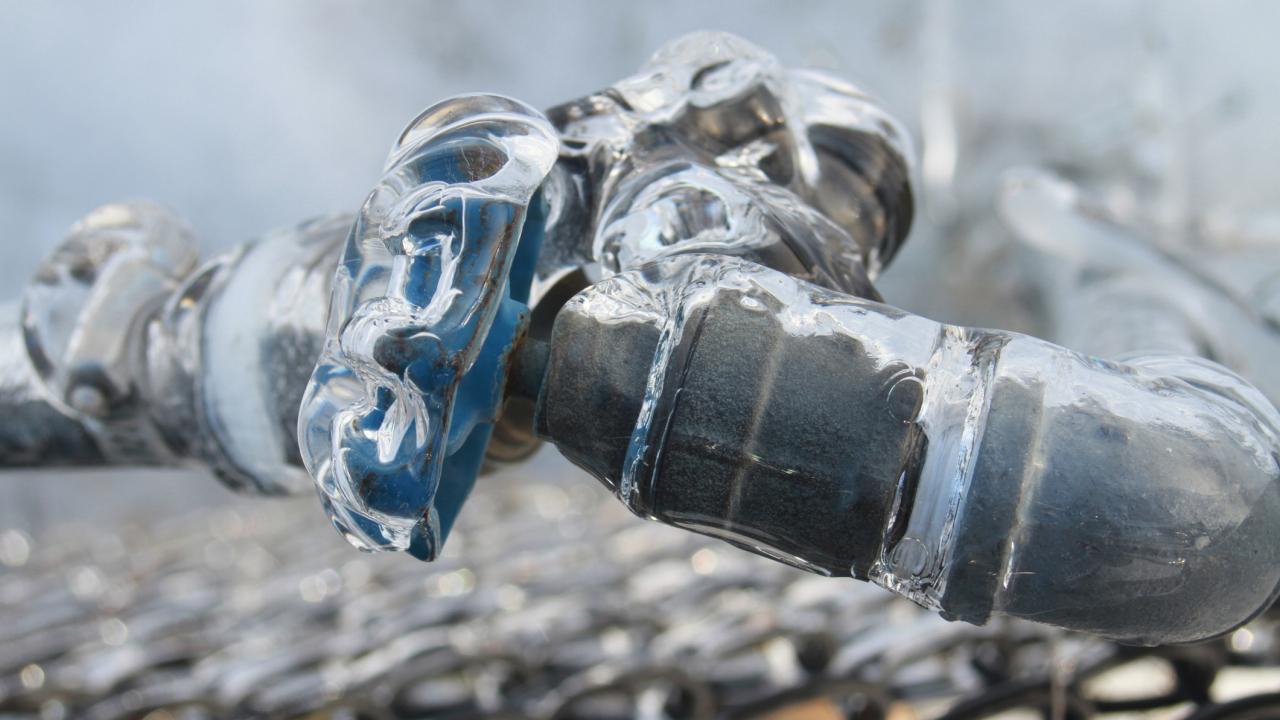Preventing Frozen Plumbing: Best Tips for Winter
Preventing Frozen Plumbing: Best Tips for Winter
Blog Article
Every person may have their unique idea involving How to Prevent Your Pipes From Freezing.

Cold weather can damage your plumbing, especially by freezing pipes. Right here's exactly how to stop it from taking place and what to do if it does.
Intro
As temperature levels decrease, the risk of frozen pipelines boosts, potentially leading to pricey repair services and water damage. Recognizing exactly how to prevent icy pipes is critical for house owners in cold environments.
Prevention Tips
Shielding susceptible pipelines
Wrap pipelines in insulation sleeves or make use of warm tape to shield them from freezing temperatures. Focus on pipes in unheated or external areas of the home.
Heating methods
Keep interior areas appropriately heated, particularly locations with plumbing. Open cupboard doors to enable cozy air to flow around pipelines under sinks.
Exactly how to recognize icy pipelines
Seek decreased water circulation from faucets, unusual smells or sounds from pipes, and noticeable frost on exposed pipelines.
Long-Term Solutions
Architectural modifications
Take into consideration rerouting pipes far from outside walls or unheated locations. Include extra insulation to attic rooms, cellars, and crawl spaces.
Upgrading insulation
Purchase top notch insulation for pipelines, attic rooms, and walls. Correct insulation assists keep regular temperatures and minimizes the danger of frozen pipes.
Protecting Exterior Plumbing
Yard tubes and outdoor taps
Separate and drain garden hoses before wintertime. Set up frost-proof spigots or cover outdoor taps with protected caps.
Comprehending Frozen Pipes
What creates pipelines to freeze?
Pipelines ice up when revealed to temperature levels listed below 32 ° F (0 ° C) for prolonged periods. As water inside the pipelines freezes, it increases, putting pressure on the pipeline walls and possibly causing them to break.
Dangers and damages
Icy pipelines can cause supply of water disturbances, residential property damage, and costly repairs. Burst pipes can flooding homes and create extensive architectural damages.
Signs of Frozen Pipeline
Recognizing icy pipelines early can stop them from breaking.
What to Do If Your Pipelines Freeze
Immediate actions to take
If you suspect icy pipes, maintain faucets open to eliminate pressure as the ice melts. Make use of a hairdryer or towels taken in warm water to thaw pipes gradually.
Verdict
Stopping frozen pipelines needs positive measures and fast responses. By understanding the reasons, indications, and preventive measures, homeowners can shield their pipes during cold weather.
Helpful Tips to Prevent Frozen Pipes this Winter
UNDERSTANDING THE BASICS: WHY PIPES FREEZE AND WHY IT’S A PROBLEM
Water freezing inside pipes is common during the winter months, but understanding why pipes freeze, and the potential problems it can cause is crucial in preventing such incidents. This section will delve into the basics of why pipes freeze and the associated problems that may arise.
THE SCIENCE BEHIND FROZEN PIPES
When water reaches freezing temperatures, it undergoes a physical transformation and solidifies into ice. This expansion of water as it freezes is the primary reason pipes can burst. As the water inside the pipe freezes, it expands, creating immense pressure on the walls. If the pressure becomes too great, the pipe can crack or rupture, leading to leaks and water damage.
FACTORS THAT CONTRIBUTE TO PIPE FREEZING
Low Temperatures: Extremely cold weather, especially below freezing, increases the risk of pipes freezing. Uninsulated or Poorly Insulated Pipes: Pipes located in unheated areas, such as basements, crawl spaces, or attics, are more prone to freezing. Insufficient insulation or lack of insulation altogether exacerbates the problem. Exterior Wall Exposure: Pipes running along exterior walls are susceptible to freezing as they encounter colder temperatures outside. Lack of Heating or Temperature Regulation: Inadequate heating or inconsistent temperature control in your home can contribute to frozen pipes. PROBLEMS CAUSED BY FROZEN PIPES
- Pipe Bursting: As mentioned earlier, the expansion of water as it freezes can cause pipes to burst, resulting in significant water damage.
- Water Damage: When pipes burst, it can lead to flooding and water damage to your property, including walls, ceilings, flooring, and personal belongings.
- Structural Damage: Prolonged exposure to water from burst pipes can compromise the structural integrity of your home, leading to costly repairs.
- Mold and Mildew Growth: Excess moisture from water damage can create a favorable environment for mold and mildew growth, posing health risks to occupants.
- Disrupted Water Supply: Frozen pipes can also result in a complete or partial loss of water supply until the issue is resolved.
WHY CERTAIN PIPES ARE MORE PRONE TO FREEZING
- Location: Pipes located in unheated or poorly insulated areas, such as basements, crawl spaces, attics, or exterior walls, are at higher risk of freezing.
- Exterior Pipes: Outdoor pipes, such as those used for irrigation or exposed plumbing, are particularly vulnerable to freezing as they are directly exposed to the elements.
- Supply Lines: Pipes that carry water from the main water supply into your home, including the main water line, are critical to protect as freezing in these lines can affect your entire plumbing system.
- Underground Pipes: Pipes buried underground, such as those connected to sprinkler systems or outdoor faucets, can be susceptible to freezing if not properly insulated.
https://busybusy.com/blog/helpful-tips-to-prevent-frozen-pipes-this-winter/
:strip_icc()/snow-outdoor-faucet-pipes-4af65d1e5e904fb1aa7bf74071fe5d89.jpg)
We had been shown that write-up on Prevent Frozen Pipes from a friend on another website. Loved our piece of writing? Please share it. Help somebody else discover it. Many thanks for being here. Come back soon.
Click Here Report this page